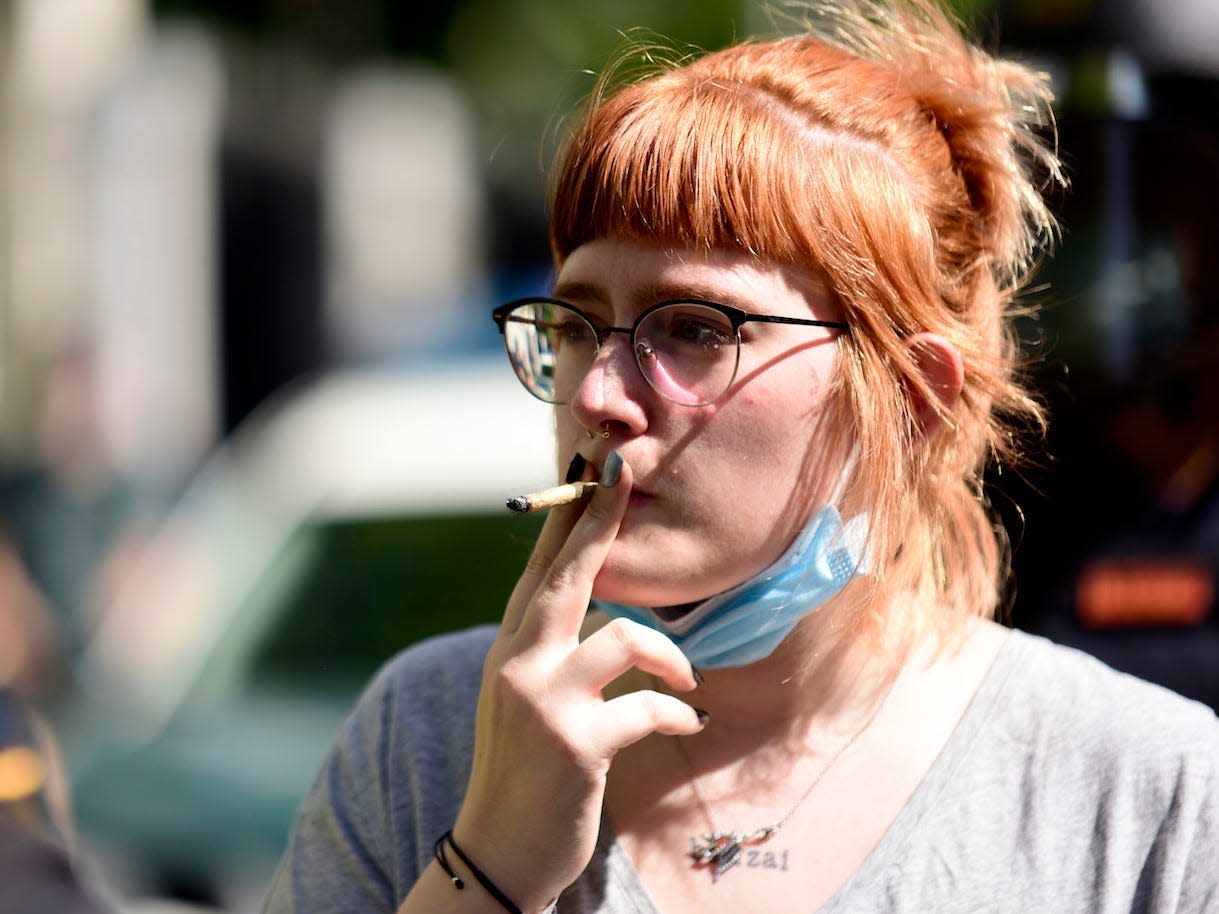
-
New Jersey announced on Thursday that it would start vaccinating people 65 and older and people with health problems against the coronavirus.
-
One of the diseases that now puts New Jerseyers at the front of the line is smoking.
-
Only people aged 75 and over and essential workers were recommended to be next in line, but American officials recently urged states to expand eligibility.
-
Visit the Business Insider home page for more stories.
Authorities are struggling to accelerate COVID-19 vaccinations across the United States, but a complicated set of guidelines on who should have priority has hampered states’ efforts to maximize the number of vaccines.
To speed up deployment, Health and Human Services Secretary Alex Azar said on Tuesday that states should expand the number of people who have priority access. That pool should now include Americans aged 16 to 64 who have certain underlying health problems that increase their risk of developing serious COVID-19, he said.
As a result, New Jersey Governor Phil Murphy announced that the state will extend the vaccine’s eligibility according to Azar’s recommendations starting on Thursday.
The decision will place the state’s two million cigarette smokers at the head of the vaccine line, alongside people with other high-risk medical conditions, including obesity, type 2 diabetes and heart disease.
“Nicotine is one of the most powerful addictions. Smoking increases the risk of more serious illnesses. If an individual who smokes gets COVID, he gets sick much faster,” said Donna Leusner, director of communications for the state health department. in a statement Thursday.
“Our goal is to save as many lives as possible and promote vaccination among the most at risk groups,” he added.
In NJ, smokers can be vaccinated before teachers

New Jersey’s decision to expand its priority vaccine pool means that smokers can now be vaccinated together with healthcare professionals, police and fire departments, and residents 65 and older.
The measure also catapults people with a history or current practice of smoking cigarettes in front of teachers and public transport officials in the state.
According to CDC guidelines, essential workers must be among the next in line, although ultimately, individual states decide how to distribute their vaccines. States like New York are already vaccinating teachers.
Governor Murphy’s announcement sparked protests on social media, with people pointing out that smokers now have higher priority over essential workers, who are disproportionately black.
According to Kristen Ehresmann, director of epidemiology, prevention and control of infectious diseases at the Minnesota Department of Health, expanding the set of priorities can be more problematic than rewarding.
“There would be some gains in efficiency, but there would be significant losses” in terms of vaccine equality and racial justice, she told STAT.
No proof needed

New Jersey Department of Health commissioner Judy Persichilli said at a news conference on Wednesday that the state will not ask for evidence that people smoke if they show up to be shot.
“No documentation of the medical condition or age will be required,” she said.
Twitter users joked that the loose guidelines around the eligibility of the new vaccine in New Jersey represented an easy opportunity to be vaccinated.
The expanded priority pool means that four and a half million New Jersey residents – about half the state’s population – are now eligible for a vaccine.
In addition to the state’s two million smokers, this group includes one and a half million residents aged 65 and over and up to one million people with other health conditions, according to Persichilli.
New Jersey administered only about 288,000 doses until Thursday – about 6.5% of the now eligible population – and the state has only received 731,000 doses, according to the Washington Post.
States cannot vaccinate everyone who is now eligible
Although not all states have followed Azar’s recent instructions (Florida and Texas opened vaccines for residents over 65 in late December), this expansion of America’s priority vaccine pool means that any state is unlikely to be able to vaccinate all eligible residents in the near future.

There are 24 million health workers and residents of long-term care facilities who are part of the first priority group. Americans over 74 and essential frontline workers, who make up about 49 million people, make up group two, followed by 129 million Americans over 64 or with underlying health problems.
Given Azar’s announcement on Tuesday that all three groups should move to the front of the vaccine line, more than 200 million Americans are now calling for an injection.
According to Moncef Slaoui, chief aide to Operation Warp Speed, only half of that number will be vaccinated by March.

The US deployment speed is already significantly behind Slaoui’s predictions.
He predicted last month that 50 million Americans would be vaccinated by the end of January. With only 17 days to go, only 11.1 million doses were administered and only 30 million doses were distributed, according to the CDC.
Read the original article on Business Insider
